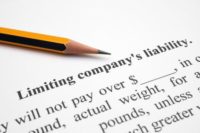
Commercial Leases play by a different set of rules.
Whether you are looking for an address for your small business or leasing your property to a small business, it is important to understand that commercial leases are very different from residential leases. The list of various terms discussed in this article is by no means comprehensive, rather, the discussion is intended for you to familiarize yourself with commercial leases in general. I hope that you prepare yourself adequately prior to entering into such a huge commitment.
Commercial lease terms vary widely depending on the area, type of business and local economy. Unfortunately, neither landlords nor tenants pay enough attention to the terms of the lease at the time of execution. In my practice, I encounter many parties who should have paid closer attention to the terms of the lease and end up facing the stark reality that they are not protected once a dispute arises. In every lease, you should know from the outset that there will not be any unfortunate surprises awaiting you down the road. Poorly written leases can cost you your business or your property.
Commercial leases typically have a much longer term.
Location is everything to a small business. It is difficult for a small business to build a good reputation in the community if they are constantly moving from location to location. As a result, most commercial leases have far longer terms than residential leases do. Most long-term leases typically require tenants to pay increases in the monthly rent.
Also, you should pay close attention to what the lease says will happen at the end of the initial term. May the tenant renew the lease at the end of the term? If so, pay attention to how long the new term will last and what the rent might increase to. While it may be difficult for you to foresee now, you do not want to encounter a situation where you are unsure what will become of your business at the end of the lengthy term. Moving a business is expensive and uncertain
Commercial leases should discuss the type of business allowed on the property.
Not only should the lease consider the type of business which may operate in the leased unit, it should consider the make-up of the commercial building as a whole. I have counseled small business owners who never considered that the same exact type of business had the right to move in next door to them and steal their business. Unfortunately, they did not pay close enough attention to the lease and were not protected.
Also, a landlord or current commercial tenant may have a particular aversion to a certain type of business. The landlord should be concerned about whether there is harmony between the existing tenants and whether the new business would be a good “fit”. Whether you are a landlord or a tenant, you do not want to end up in a situation where the clientele of one business is considered unsavory by the other tenants. This may be accomplished by clearly defining the types of businesses allowed and whether there should only be one of each business. There is a great deal of litigation over non-compete agreements in commercial leases.
Commercial leases should discuss insurance and liability.
If the small business has a steady flow of customers on the premises daily, the landlord should be concerned with liability. Certain businesses create a greater potential for liability than others. For example, a nightclub would certainly create a great deal more risk than a hair salon would, simply because of the late hours and the flow of people (who have been drinking).
The lease should also clearly state the amount/type of insurance that the tenant is to carry throughout the term. If you are the landlord, it is a good idea to also ask for proof of the insurance policy. All too often, tenants allow the insurance to lapse.
Commercial leases should cover repairs, alterations, parking, signage, etc…
There are many other concerns which a small business owner or landlord should consider when drafting a commercial lease. And if the tenant does make repairs, improvements or alterations to the property, the parties need to agree as to who is responsible for the cost and whether those improvements leave with the tenant at the end of the term.
Depending on the location of the building, parking may also be an issue. You would want to ensure that parking is apportioned appropriately among the various tenants. Also, you should consider whether the landlord is proactive in ensuring that the noncustomers do not use the lot.
Visibility is everything to a small business. The lease should discuss what types of signs are allowed and describe their location and size. Before you order that big expensive sign, ensure that it is allowed by your lease. Also, you would want to ensure that other tenants of the building are abiding by the rules and that their signs would not deter your potential customers or detract from the image you are working to create.
Ryan C. Young | Business Attorney | Richmond, Virginia




